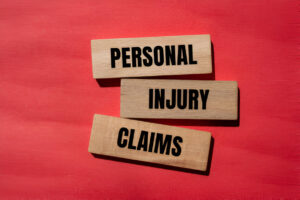Filing for Bankruptcy in Texas When You Have a Personal Injury Claim

Can You File for Bankruptcy If You Have a Personal Injury Claim?
Yes, you can. And it’s a situation more common than most realize. Texans dealing with medical debt, lost wages, or financial hardship after an injury often wonder how bankruptcy will affect their compensation. The good news? In many cases, your personal injury settlement can be protected—but only if you plan smartly.
What Happens to My Personal Injury Settlement in Bankruptcy?
This is one of the most frequently asked questions. Let’s break it down:
Here’s how it works:
-
Chapter 7 Bankruptcy: In Texas, the bankruptcy trustee can claim non-exempt assets to pay creditors. If your injury settlement isn’t protected by exemptions, part (or all) of it could be taken.
-
Chapter 13 Bankruptcy: Your settlement might still count as part of your income, but you’re more likely to retain it by repaying debts through a structured plan.
Texas has some of the strongest protections in the U.S. when it comes to lawsuit settlement protection—but you have to know how to use them.
Pro Tip: Always consult with a bankruptcy attorney before your personal injury claim settles to ensure the funds are classified and exempt properly.
What Are Exempt Funds in Texas?
In bankruptcy terms, “exempt funds” are assets you get to keep. Texas provides generous exemptions under the Texas Property Code and the Federal Bankruptcy Code (you choose one or the other—but not both).
Common exemptions include:
-
Personal injury damages for pain and suffering (not for lost wages or punitive damages)
-
Medical equipment or home equity (up to certain limits)
-
Retirement accounts and pensions
-
Personal belongings, including vehicles up to a certain value
See the Texas exemption guide for a breakdown of what’s protected.
How to Protect a Personal Injury Settlement During Bankruptcy
Wondering how to keep your compensation safe? Here’s what you should do before, during, and after filing:
1. Speak with a Bankruptcy Attorney Who Understands Injury Law
Work with firms like Kisch Consumer Law who can coordinate your bankruptcy and injury claim strategy. This ensures you don’t unintentionally risk your settlement.
2. Use Legal Structuring Tools
You may be able to:
-
Classify funds as exempt before receiving them
-
Allocate damages appropriately (e.g., distinguish pain/suffering from punitive damages)
-
Use a structured settlement to delay payments until after bankruptcy
3. Avoid Mixing Funds
Never deposit settlement checks into accounts used for daily spending. This could make them harder to classify as exempt.
Why Choose Kisch Consumer Law for Bankruptcy in Texas?
If you’re navigating both bankruptcy and a personal injury case, you need more than a generalist. Here’s why Kisch Consumer Law’s legal team is trusted across Texas:
-
In-Depth Knowledge of how bankruptcy and civil litigation intersect
-
Personalized Debt Relief Plans that include lawsuit protection
-
Transparent Case Management with clear timelines and goals
-
Exemption Strategy Experts to help preserve as much of your settlement as possible
Looking to protect your injury compensation while clearing debt?
Create a data-driven strategy tailored to your audience with expert support from Kisch.
FAQs About Bankruptcy and Injury Settlements in Texas
What’s the best way to protect a personal injury settlement in bankruptcy?
Consult a Texas bankruptcy attorney immediately and use exemptions strategically.
Is my entire personal injury settlement at risk?
Not always. Pain and suffering damages are typically exempt, but punitive and lost wage damages may not be.
Can I file for bankruptcy before my personal injury case settles?
Yes, but it’s best to coordinate both processes carefully. This can help you retain more of your award.
What if I already received my settlement?
You may still protect some or all of the funds—especially if they’re untouched and properly classified. But urgency is key.
Quick Tips: Don’t Lose Your Settlement to Debt
-
Don’t file without talking to both your injury and bankruptcy lawyers
-
Don’t mix settlement funds with everyday checking accounts
-
Document how every dollar of your injury claim was calculated
-
Time your filing to match your settlement stage
Ready to Take Control of Your Financial Future?
Bankruptcy doesn’t have to mean losing everything. With the right guidance, you can protect what matters most—your health, your recovery, and your compensation.
Don’t let medical debt or creditor pressure wipe out your hard-earned settlement.
Start fresh with the help of experienced Texas-based professionals who understand the legal maze you’re navigating.
Explore your options with Kisch Consumer Law and get a clear path forward today.
A (Slightly Comical) Conclusion to a Serious Situation
Look, filing for bankruptcy is nobody’s dream. And dealing with a personal injury claim on top of it? That’s like being handed a cactus while already walking barefoot through sand.
But here’s the truth: You’ve got more power than you think. With a bit of legal finesse and the right partner in your corner (hey there, Kisch Consumer Law), you can turn this into the comeback story you’ll tell over Thanksgiving dinner.
So go on—grab that phone, sip that coffee, and take the first step toward protecting your future (and your settlement).
